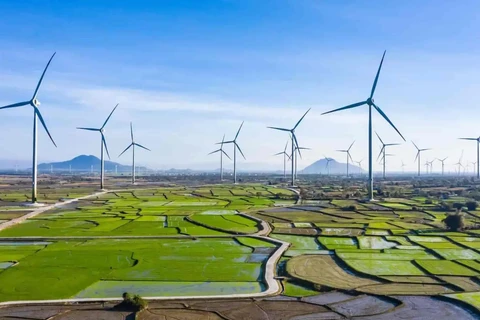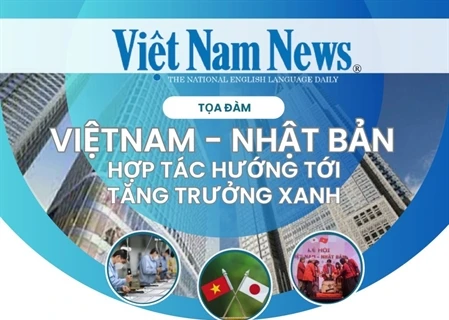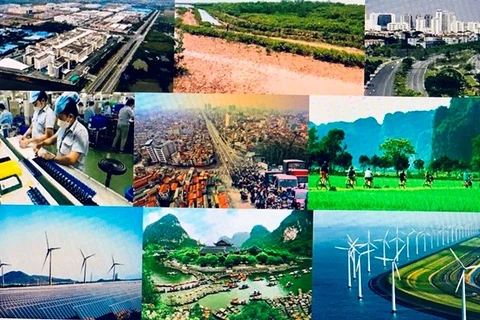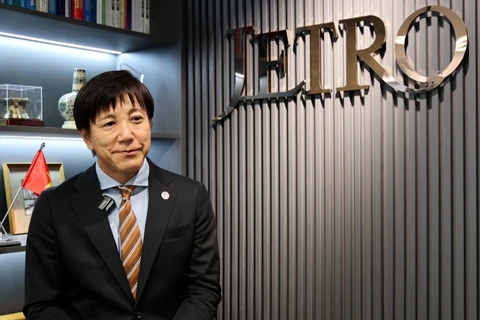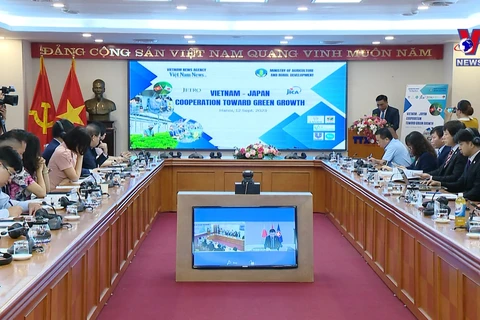 Participants at the seminar "Vietnam-Japan cooperation towards green growth" in Hanoi on September 12. (Photo: VNA)
Participants at the seminar "Vietnam-Japan cooperation towards green growth" in Hanoi on September 12. (Photo: VNA) In addition, he said Vietnamese farmers also have to adapt to new requirements set by international markets with stiff competition while dealing with the adverse effects of increasingly frequent natural disasters.
De said foreign investors, especially Japanese investors and businesses, could play an important role in addressing the above-mentioned issues.
Foreign firms, however, have long voiced their concerns over a lack of support for green growth projects in the Southeast Asian country.
While praising the Vietnamese government's initiative to improve resource management efficiency and to develop a circular economy, Kinoshita Tadahiro, Director-General of Sojitz Vietnam, President of the Japanese Chamber of Commerce and Industry in Vietnam, said power supply remains a key concern among foreign companies.
He said some Japanese firms have reported power shortages in recent months in the northern regions of Vietnam. A solution, which has been put into practice by some firms, was to install solar power on the rooftops of their factories, which according to the firms, could help cut down carbon emissions at the same time.
However, many said large-scale investments in solar panels remain challenging as they have yet to be allowed a license or connection to the national grid and, therefore, are unable to sell their excess power.
Ellen Van, an investment director from Mekong Capital, advised the government to provide additional support to foreign investors and businesses as they are well-positioned to help create positive impacts on the environment, the economy and Vietnamese society.
Vuong Thi Minh Hieu, deputy head of the Department of Industrial Zones under the Ministry of Planning and Investment (MPI), said the Vietnamese government's top priorities in the coming years include pushing for greater administrative reforms to support businesses, Vietnamese and foreign; building green agriculture infrastructure, applying advanced technologies and improving human resources./.
VNA
